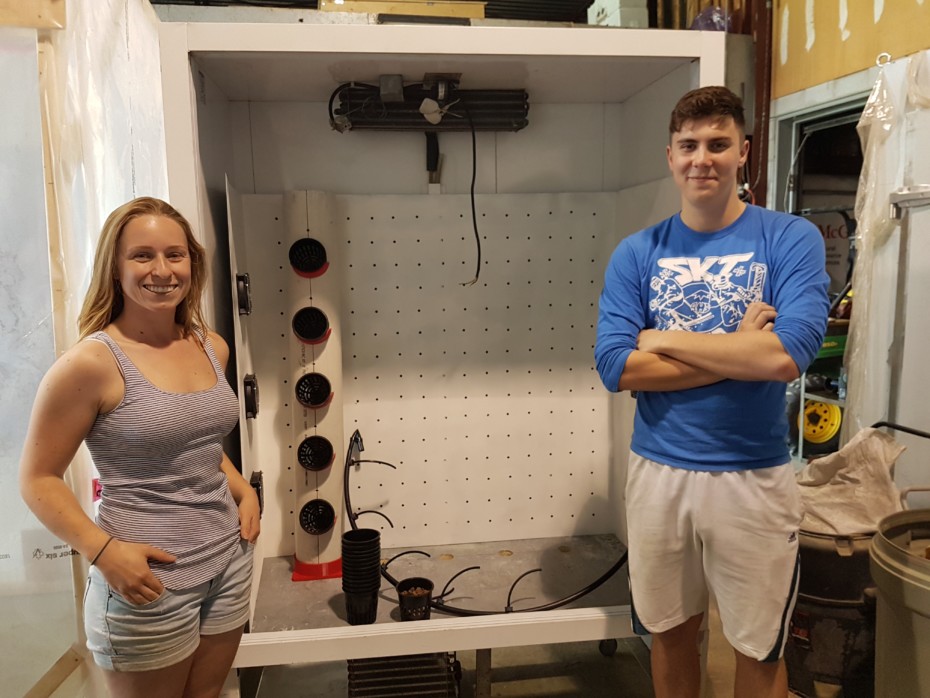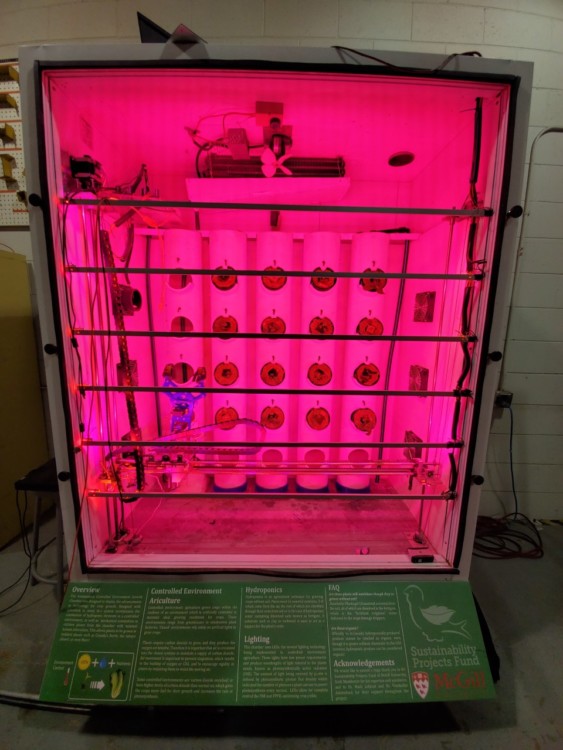
When the Sustainability Projects Fund (SPF) was established in 2009, it was an experiment.
The idea was simple: Promote a culture of sustainability across McGill by providing seed funding for grassroots sustainability projects that address everything from energy savings to social justice. (Each student would pay 50 cents per credit, which the administration would match dollar for dollar.) Members of the McGill community, including students, staff and faculty, would be welcome to apply for funding for their projects big and small.
Ten years, and $7 million in funding, later, it’s safe to say the experiment has been a huge success.
On October 10, the SPF will celebrate its 10th anniversary as the largest fund of its kind in Canada.
In the ten days leading up to October 10, the McGill Reporter is highlighting 10 of the more than 200 projects that have been supported by the SPF.
Today’s project: Autonomous Controlled‐Environment Growth Chamber
The great societal shift toward fresh, sustainable, hyper-local food practices is taking root. But Montreal’s northern climate is obviously incompatible with year-round production of fresh produce.
To counter that reality, some McGill Macdonald campus students decided to design and build a fully autonomous, year-round vegetable production system that could ultimately be scaled up for mass production – and even brought into the home.
Team members who received funding from the SPF for their Autonomous Controlled‐Environment Growth Chamber Display project said that they hoped eventually to provide a steady supply of fresh produce to campus clubs or to the McGill Farm Community Outreach Center for visitors.
The objective is not only to offer a solution to our short plant growing season, a problem farmers and others in the agri-food business have grappled with for generations. It is also to “educate visitors on the current advancements in urban agriculture technology,” showcase all the research being done on the Macdonald campus and “all the wonderful progress being done on sustainable research,” which they deemed insufficiently known by society at large, and even McGillians.
The system will respect all three pillars – economic, environmental and social – of sustainability, the team said, and will showcase the agriculture of the future.
Rachael Warner and Pierce Dias Carlson, both currently pursuing a master’s degree in bio-resource engineering at the Faculty of Agricultural and Environmental Science at the Macdonald campus, partnered for the project.
Warner said that the system is now functional and will be featured at the Macdonald Campus Community Engagement Centre when it opens next summer.
“Akin to a plant vending machine”
The aim is to “produce a growth system with minimal input and maximum crop yield” with the help of Prof. Mark Lefsrud, on whose expertise on greenhouse design, lighting and botany the students drew heavily.

The pedagogical aspect of the system is as important as its actual use, Warner added.
The basic device, an old fridge that has been adapted with a host of electronic and other systems, “is akin to a plant vending machine,” she said. An electronic claw plucks and dispenses the ripe plant on command.
Its “fertigate” feature – fertilizer and irrigation – allows the device to use minimal amounts of water and fertilizer.
“All the features of the system highlight the progress that has been done in sustainable controlled-environment agriculture, from the irrigation to the material choices.”
Funds from the SPF financed the purchase of tools, equipment and supplies and paid for the design, fabrication and installation of the system.
The system was hit at a recent Precision Agriculture Conference at Macdonald and was featured at various homecoming events last week at both campuses, drawing much interest from students.
“It’s bright pink (from the blue and red LEDs that illuminate it), so a lot of people come up to it and are quite interested,” Warner noted.
#spf10
